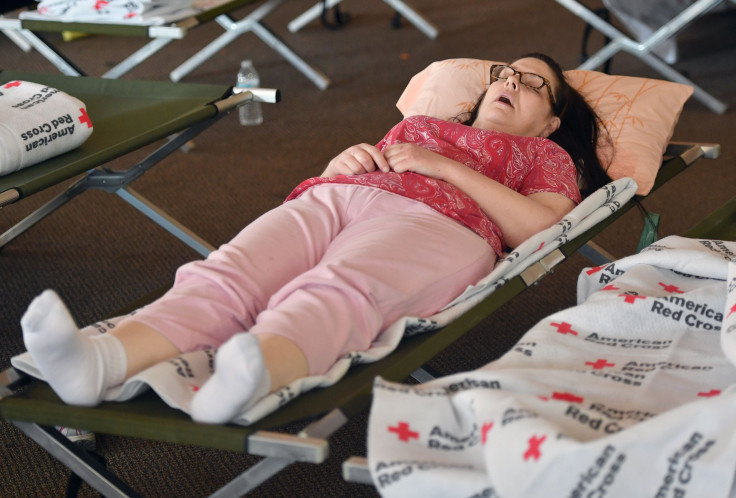Menopause And Sleeplessness: How Hormonal Changes In Middle-Aged Women Affect Sleep

Dealing with the mid-life crisis can be tough, especially for postmenopausal women. Among the various menopausal symptoms faced by these women due to hormonal changes, is also sleep deprivation.
According to a new government study, more than one in four non-pregnant women between the age of 40 and 59 have trouble sleeping four times or more in a week. The study carried out by the U.S. Centers for Disease Control and Prevention (CDC) used data from 2015 National Health Interview Survey (NHIS) which polled non-pregnant women aged 40–59. Among the participants, 74.2 percent of women were premenopausal, 3.7 percent were perimenopausal and 22.1 percent were postmenopausal. More than 2,800 women participated in the survey.
Postmenopausal women were those who had gone without a menstrual cycle for more than a year or were in surgical menopause after removal of their ovaries. Perimenopausal women were those who no longer had a menstrual cycle, and the last time they had it was a year ago or less. Premenopausal women were those who were still going through their menstrual cycle.
"Among those aged 40–59, perimenopausal women (56.0 percent) were more likely than postmenopausal (40.5 percent) and premenopausal (32.5 percent) women to sleep less than 7 hours, on average, in a 24-hour period," the report stated.
The amount of sleep and its quality contribute considerably to our health and wellness. Insufficient sleep is associated with an increased risk for chronic conditions such as cardiovascular disease and diabetes also due to the hormonal changes — that occur in a woman's body when she is on the verge of menopause or after the menopausal transition.
The study also reveals the sleep duration changes with advancing age, and both the duration and quality are affected by shifts in reproductive hormone levels. "Also quite striking is that postmenopausal women (in the report) were more likely to experience disruptions in sleep quality compared with premenopausal women in the same age group," Anjel Vahratian, author of the report and chief of data analysis for the National Center for Health Statistics, said in an email to CNN.
Vahratian wanted to conduct the study as the amount and quality of sleep people get is directly related to health issues such as risk for cardiovascular disease and diabetes. One of the experts, Dr. Rajkumar Dasgupta, who reviewed the CDC study said that women going through menopause experience hot flashes — a feeling of intense warmth that’s not caused by an external source.
Sleeplessness in this period is "going to be about hot flashes, which really start taking place during perimenopause," said Dr. Dasgupta, an assistant professor of clinical medicine at the Keck School of Medicine at the University of Southern California, Los Angeles, according to MedicineNet, a health news website. "During this time, women can see their body temperature skyrocket, and they can experience night sweats, which means they're experiencing multiple arousals while trying to sleep," he explained.
Hormonal changes like decreased levels of estrogen result in sleeplessness, according to Dr. Dasgupta. "Estrogen helps out with muscle tone in the upper airways, and the loss of that contributes to obstructive sleep apnea risk," she said.
Dr. Alon Avidan, professor and vice chair of the University of California, Los Angeles (UCLA) Department of Neurology at UCLA and director of the UCLA Sleep Disorders Center, also shared a similar observation while speaking to CNN. "During this period, there is marked decrease in estrogen and progesterone secretion by the ovaries, associated with several other physical, physiological and psychological changes that directly influence sleep," he said.
According to Dr. Avidan, progesterone protects younger women from sleep apnea — a sleep disorder that occurs when a person's breathing is interrupted during sleep — and snoring. So, when a woman approaches her menopause, the lower levels of progesterone — which has both hypnotic and stress-relieving effects — leads to disturbed sleep.
So, how can you improve your sleeping patterns during this phase? Dr. Dasgupta suggested women experiencing hot flashes must wear loose clothes and keep a check on the room temperature for comfort. Moreover, it is advisable to avoid smoking, he said. "You should also try to have a defined bedtime and wake time so that your body clock is set. If your problem still persists, do not shy away from consulting your doctor," Dr. Dasgupta pointed out.
© Copyright IBTimes 2024. All rights reserved.






















